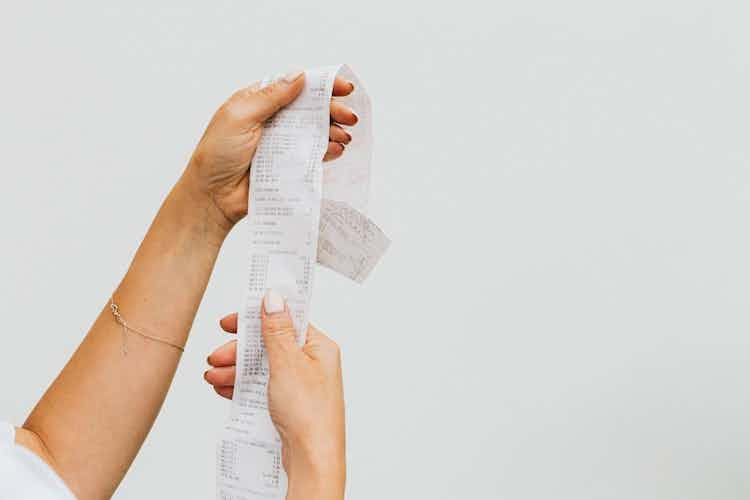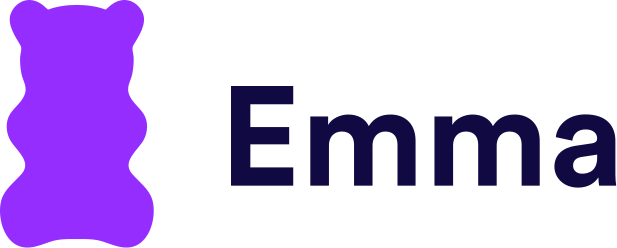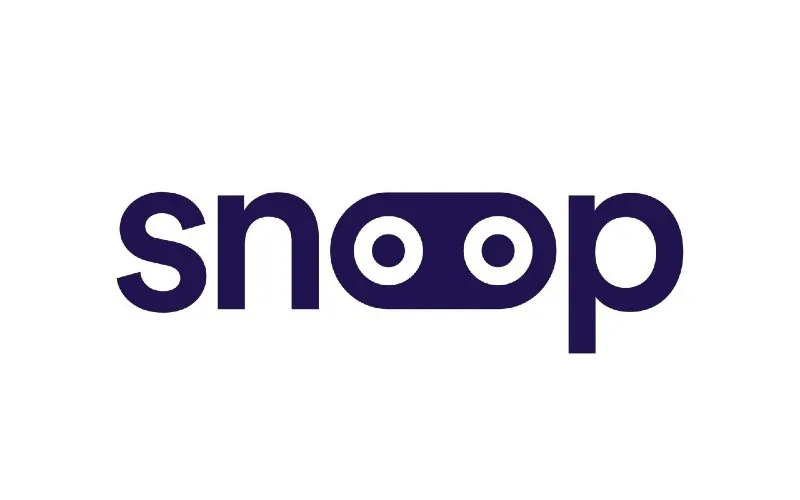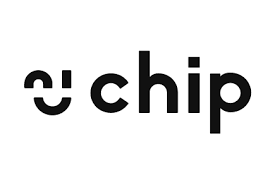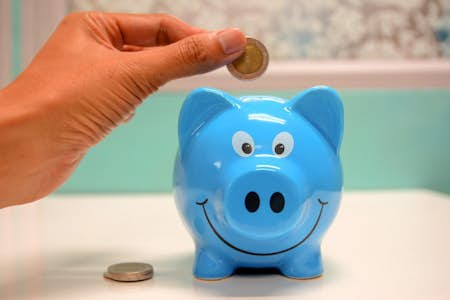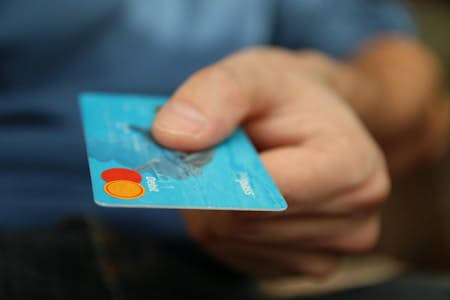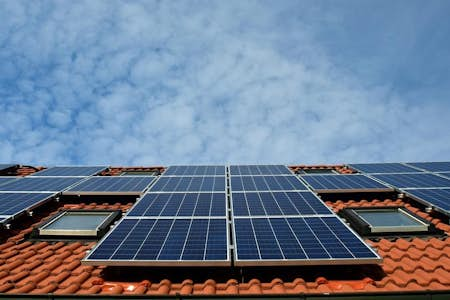Does the cost of living give you a scare? You're not alone; many struggle to make ends meet as fuel prices and food costs continue to rise. In 2022, the government launched a cost-of-living payment scheme to provide further help if you're on a low income and receive certain benefits or tax credits. Could you benefit from these cost of living payments?
Cost of living payment dates for 2023 mean you could get up to three qualifying payments. The first was paid earlier this year, with the subsequent payments coming in autumn 2023 and spring 2024. Let’s dive into the essential details you need, including upcoming payment dates and eligibility criteria.
Cost of living payments 2023/2024
The official payment schedule shows that the government has already made some payments for 2023. If you are entitled to these payments, then you should have:
- Received £301 between 25 April 2023 and 17 May 2023 if you get Department for Work and Pensions (DWP) benefits.
- Received £301 between 2 and 9 May 2023 if you get tax credits but don't receive other low-income benefits.
- Received a £150 Disability Cost of Living Payment between 20 June 2023 and 4 July 2024.
If you haven't received a payment that you think you should have, keep reading to find out what you should do next.
If you qualify, you should receive a second £300 cost of living payment during autumn 2023. You’ll receive the £300 qualifying benefit:
- Between 31 October and 19 November 2023, if you receive Universal Credit, Income-based Jobseeker's Allowance (JSA), Income-based Employment and Support Allowance (ESA), Income Support or Pension Credit.
- Between 10 November and 19 November 2023, if you’re receiving tax credits and no other low-income benefits.
The final instalment should arrive during Spring 2024. The third instalment is worth £299. The government will also pay an additional £300 ‘Winter Fuel Payment’ during winter 2023/24 if you were born before 25 September 1957.
There are currently no more planned disability cost of living payments.
Who is eligible for cost of living payments?
The cost of living payments are for people receiving certain benefits of tax credits. If you're eligible, you may get up to five payments. Unlike many other state benefits, you don’t need to apply for these payments. The payments are automatic; you don't need to complete any forms to get them.
There are a few different cost of living payments available. Let's look at them now.
Low-income (means-tested) benefits of and tax credits
You can receive up to three cost of living payments if you receive any of the following benefits or tax credits:
- Income-based JSA.
- Income-related ESA.
- Income support.
- Pension Credit, Universal Credit, Child Tax Credit or Working Tax Credit.
As of 2023/2024, the three payments are £301, £300 and £299.
You won't receive the payments if you only get:
- New Style ESA.
- New Style JSA.
- Contributory ESA.
What are the qualifying dates for the cost of living payments?
£300 cost of living payment eligibility
The government has now updated the qualifying periods. They are as follows:
- Universal Credit. If you received a Universal Credit payment from 18 August 2023 to 17 September 2023.
- Income-based JSA, Income-related Employment Benefit, Income Support and Pension Credit. You are eligible if you received any of these benefits between 18 August 2023 and 17 September 2023. This applies even if you have not yet received a benefit payment because the entitlement is between 1 penny and 9 pence.
- Tax Credits. If you received any tax credit payments for any day between 18 August 2023 and 17 September 2023. The qualifying period also applies if you later receive a payment for any day in that period. The tax credits include Child Tax Credits, Working Tax Credits, and Pension Tax Credits.
£301 cost of living payment
The eligibility period for the first £301 cost of living payment was similar. You should have received the payment if you during any day from 26 January to 25 February 2023 if you received:
- Universal Credit.
- Income-based JSA.
- Income-based ESA.
- Income Support.
- Pension Credit.
You would also have been eligible if, during the period, you received a payment of tax credits for the tax year 2022/23 or an annual award of at least £26 of tax credits for the tax year 2022/23.
Please note that you won't receive a cost of living payment from HMRC if you already receive a low-income cost of living payment from the Department for Communities or DWP.
£299 cost of living payment
Spring 2024 is the date for the third instalment for 2023/24. The government will announce details for the assessment period for the third payment closer to the time. You can keep an eye out for updated guidance on the Gov.uk cost of living payment webpage.
Pensioner cost of living payment
If you're entitled to a Winter Fuel Payment for winter 2023/24, you will receive an extra pensioner cost of living payment. The Winter Fuel Payment for winter 2023/24 is available for anyone born before 25 September 1957.
The payment is an extra £150 or £300 paid with the regular Winter Fuel Payment from November 2023. The exact amount depends on your birth date and circumstances during the qualifying dates.
The government will send you a letter in October or November 2023 to tell you if you're eligible and how much you'll receive.
You can learn more about current pension allowances from our previous blog here.
Disability cost of living payment
You might have received £150 in the summer of 2023 if you received certain disability benefits, including any of the following:
- Attendance Allowance.
- Constant Attendance Allowance.
- Disability Living Allowance for adults or children.
- Personal Independence Payment.
- Armed Forces Independence Payment.
- War Pension Mobility Supplement.
You should have received the one-off disability cost of living payment if you received any benefits before 1 April 2023. However, you may also receive the payment later if you qualify for the above benefits.
The payment will have arrived in your credit union or bank account between June and July of 2023.
Who is not eligible?
You won't receive the payment if you only get the following benefits:
- Carers Allowance.
- New style or contribution-based JSA, unless you also receive Universal Credit or a qualifying disability benefit.
- New style or contribution-based ESA, unless you also receive Universal Credit or a qualifying disability benefit.
- Incapacity benefit.
- Industrial injuries disablement benefit.
You may still be eligible if you receive a qualifying low-income benefit and one of the above benefits. For example, if you receive both Child Tax Credits and Carer's Allowance, you will be eligible for automatic payment.
What about 'nil awards'?
Please note that if your benefit has reduced to £0 for the qualifying period, you will not qualify for the cost of living payment. This situation is also known as a 'nil award.'
There are several reasons why your benefits could be reduced to £0, such as receiving multiple earnings payments in the same assessment period or an increase in either your or your partner's earnings.
However, you may qualify if other deductions, such as rent payments, reduce the amount. You can find more information about nil awards here.
How will the cost of living payment be paid?
The payments are automatic, which means you don't need to apply, as you do for things like Working Tax Credit or Income-based JSA. If you are eligible for a qualifying benefit, the benefit will be deposited directly into your account.
The payment method is the same as your benefit payment. If you receive your Child Tax Credit or Pension Credit on a bank account, your cost of living payment will arrive in the same account. If you get the payments on your credit union account, that's where they will show up. The payments always use the same payment method.
Please note that these payments are made separately from your benefit payments. You will receive a normal payment of your qualifying normal benefit payments. The living support package will automatically pay you on your account.
Ensure you check which account that is so you can check if the payment has been deposited on time.
What if you didn't receive a qualifying cost of living payment?
You should have received some of the cost of living payments if you were eligible. If you qualified, you should have received:
- The £301 cost of living payment for people on low-income benefits and tax credits.
- The disability cost of living payment.
But what if you're missing cost of living payments even though you're eligible?
Reporting a missing payment is easy and only takes a few minutes. You can do it online through a government portal, and all you'll need is your National Insurance number.
Please check with your bank, building society or credit union account before you report a missing cost of living payment. You also shouldn't report a missing payment more than once. You should receive the cost of living payment automatically after reporting.
Only use the portal if you haven't received:
- The £301 cost of living payment for a low-income benefit.
- The £150 disability cost of living payment.
The other payments have yet to be made, and you'll automatically receive the cost of living payment if you're entitled to them.
Do cost of living payments affect taxes or benefits?
The cost of living payments won't impact your benefits or tax credits. You don't need to worry about exceeding the benefit limits if you receive the payment. You also don’t need to worry about your or your partner’s savings.
You will not pay any income tax on your payments.
Be aware of scams
Please be aware that the DWP or the Department for Communities will never ask for bank details by text or email. If you receive a suspicious email or text asking for bank details, you should always report it. You don't need to apply for the cost of living payment, so messages asking you to do so are fraudulent.
How to learn more about cost of living payments 2023
The cost of living payments can help low-income households in the current economic conditions. With prices rising, every little can help. If you're eligible for the payments, you should expect the next payment in late October to early November. The payment and an additional pensioner cost of living payment should ease pressure on your bank account.
Image Credit: Karolina Grabowska at Pexels

